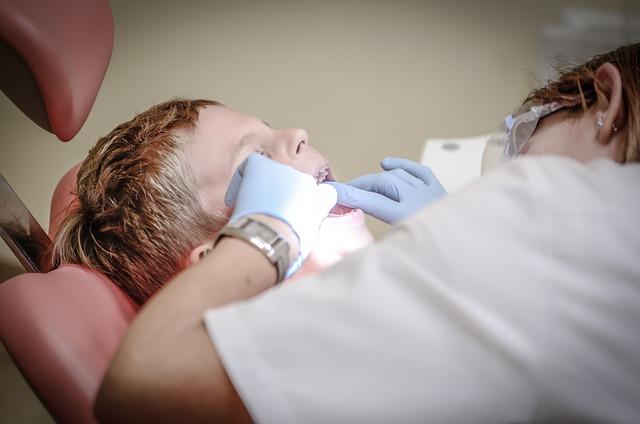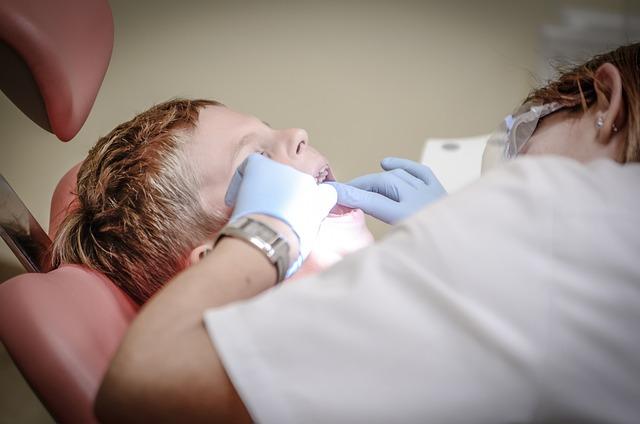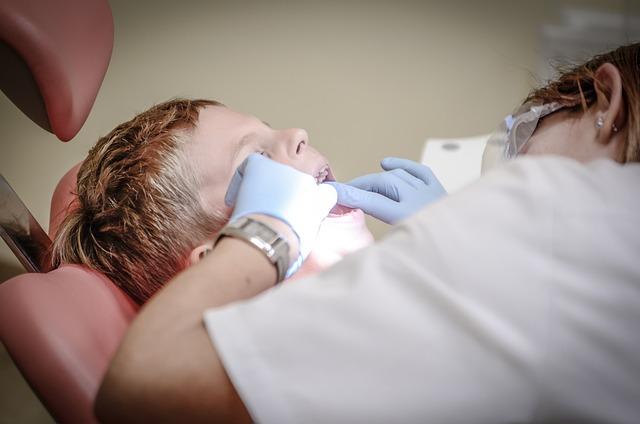When to Do Salt Water Rinse After Wisdom Tooth Extraction: Best Practices
Wisdom tooth extraction can be a daunting experience, leaving you with a variety of questions and uncertainties. One commonly asked question is when to start incorporating salt water rinses into your post-operative care routine. To ensure optimal healing and prevent potential complications, it is crucial to understand the best practices surrounding salt water rinses after wisdom tooth extraction. In this article, we will confidently delve into the topic, providing you with knowledgeable insights and clear guidelines on when and how to perform this simple yet effective technique. By the end, you will feel confident in your ability to navigate the post-extraction period, armed with the essential knowledge for a smooth recovery.
1. Understanding the Importance of Salt Water Rinse After Wisdom Tooth Extraction
The salt water rinse is an essential step in the post-operative care after a wisdom tooth extraction. It helps in maintaining oral hygiene and speeding up the healing process. Here’s why it is so important:
1. Reduces swelling and discomfort: Salt water has natural anti-inflammatory properties that can help reduce swelling and alleviate discomfort in the affected area. It can also help in relieving pain caused by inflammation.
2. Prevents infection: The salt water rinse acts as a natural antiseptic, killing bacteria and preventing infection in the socket where the wisdom tooth was removed. This is crucial for ensuring proper healing and minimizing the risk of complications.
3. Cleanses the area: The gentle swishing of salt water around the mouth helps remove any food particles or debris that may have accumulated in the extraction site. This promotes a clean environment for healing and reduces the chances of developing an infection.
4. Aids in blood clot formation: Salt water rinses can help in the formation and stabilization of blood clots, which are vital for the healing process. A proper blood clot protects the extraction site, prevents excessive bleeding, and allows for new tissue growth.
5. Easy and cost-effective: Salt water rinses are simple to make and require only a few ingredients – salt and warm water. They are also inexpensive compared to other oral rinses or medicated solutions available in the market.
Remember to follow your dentist’s instructions on how often to perform the salt water rinse and for how long. It’s crucial to maintain good oral hygiene and take care of your mouth after a wisdom tooth extraction to ensure a smooth and speedy recovery.

2. The Optimal Timing for Salt Water Rinse: A Step-by-Step Guide
Step 1: Choose the right time
Timing is crucial when it comes to salt water rinsing. It is recommended to perform the rinse after brushing your teeth and before going to bed. This allows the salt water to work its magic overnight and gives your mouth ample time to heal and recover from any oral issues.
Step 2: Prepare the solution
To make the salt water rinse, simply dissolve half a teaspoon of salt in a glass of warm water. Stir until the salt is completely dissolved.
Step 3: Rinse thoroughly
Take a sip of the salt water solution and swish it around your mouth for about 30 seconds. Make sure to reach all areas, including the gums, tongue, and cheeks. Spit out the solution and repeat the process until you have used up the entire glass.
Step 4: Don’t swallow or rinse with water
It’s important not to swallow the salt water or rinse your mouth with plain water immediately after the rinse. Let the salt water sit in your mouth for a few minutes to maximize its benefits.
Step 5: Spit and relax
After you have completed the rinse, spit out the solution and avoid eating or drinking for at least 30 minutes to allow the salt water to continue working its magic.
3. How Salt Water Rinse Promotes Healing and Prevents Infections
Salt water rinse is a simple and effective way to promote healing and prevent infections in various oral conditions. Here are some key benefits of incorporating this practice into your oral hygiene routine:
1. Reduces inflammation: The natural antiseptic properties of salt help to reduce inflammation in the mouth, soothe gum tissues, and alleviate discomfort caused by oral wounds or infections.
2. Kills bacteria: Salt water rinse creates an unfavorable environment for bacteria to thrive. It helps to eliminate harmful bacteria, preventing the development of infections such as gum disease or canker sores.
3. Cleanses wounds: Salt water acts as a gentle cleanser, aiding in the removal of debris, food particles, and bacteria from oral wounds or after dental procedures. It promotes faster healing by keeping the affected areas clean and free from infection.
4. Soothes sore throat: Gargling with salt water can also provide relief for a sore throat. It helps to reduce inflammation in the throat and nasal passages, alleviate discomfort, and support the healing process.
To perform a salt water rinse, simply dissolve half a teaspoon of salt in a cup of warm water. Swish the solution around your mouth for about 30 seconds, making sure it reaches all areas, then spit it out. Repeat this several times a day or as recommended by your dentist or healthcare professional.
Incorporating salt water rinse as a part of your oral hygiene routine can be an effective and natural way to promote healing, prevent infections, and maintain good oral health.
4. Expert Recommendations: When to Start Salt Water Rinse After Wisdom Tooth Extraction
After undergoing a wisdom tooth extraction, it’s crucial to follow proper post-operative care to ensure a smooth healing process. One important aspect of this care is the use of salt water rinses, which can help reduce swelling, alleviate discomfort, and promote healing. While it’s essential to consult with your dentist or oral surgeon for personalized guidance, here are some expert recommendations on when to start salt water rinses after wisdom tooth extraction:
- 24 hours after the extraction: It’s generally recommended to wait at least 24 hours after the extraction before starting salt water rinses. This allows the initial healing process to begin and helps prevent dislodging the blood clot.
- Follow the instructions: Your dentist will provide specific instructions on how to prepare the salt water solution. It typically involves dissolving half a teaspoon of salt in 8 ounces of warm water. Make sure to follow these instructions diligently for optimal results.
- Frequency of rinsing: In most cases, rinsing with salt water should be done 2-3 times a day, especially after meals. However, it’s crucial not to overdo it, as excessive rinsing can disrupt the healing process.
Remember, everyone’s healing process is unique, and these recommendations may vary based on your specific case. Therefore, always consult with your dental professional to ensure you’re following the appropriate post-operative care for your wisdom tooth extraction.
5. Factors to Consider: When to Delay Salt Water Rinse After Wisdom Tooth Extraction
After wisdom tooth extraction, it is important to take the necessary precautions to ensure a smooth and speedy recovery. One crucial factor to consider is the timing of salt water rinses, as they play a significant role in promoting healing and preventing infection. Although salt water rinses are generally recommended, it is essential to understand when it is appropriate to begin this routine, as starting too early or too late can have adverse effects.
Factors to Consider:
- Post-surgery bleeding: It is crucial to allow the extraction site to form a blood clot before introducing salt water rinses. Rinsing too soon can dislodge the clot, leading to prolonged bleeding or a condition known as dry socket.
- Initial healing period: The first 24 to 48 hours after surgery are critical for the initial healing process. During this time, it is generally recommended to avoid any vigorous rinsing or spitting to prevent disturbing the surgical site.
- Your surgeon’s instructions: Always follow the specific guidelines provided by your surgeon or dental professional. They may have specific recommendations based on your individual case, such as advising a delayed salt water rinse to allow for optimal healing.
- Signs of infection: If you experience symptoms such as increasing pain, swelling, or a foul taste or odor in your mouth, it is essential to contact your surgeon immediately. Delaying salt water rinses in these cases may be necessary to prevent further complications.
By considering these factors, you can make an informed decision about when to start salt water rinses after wisdom tooth extraction. Remember, every individual may have unique circumstances, so it is crucial to consult with your dental professional to determine the most suitable timing for you.
6. Avoiding Common Mistakes: Tips for an Effective Salt Water Rinse Routine
When it comes to maintaining a proper salt water rinse routine, it’s essential to be aware of some common mistakes that can hinder its effectiveness. By avoiding these missteps, you can ensure that your salt water rinse is efficient and provides maximum benefits for your oral health.
Here are some helpful tips to keep in mind:
- Don’t use table salt: While it may be tempting to use table salt for your rinse, it’s not recommended. Table salt often contains additives like iodine or anti-caking agents, which can irritate your mouth. Instead, opt for sea salt or kosher salt, as they are more natural and less likely to cause any discomfort.
- Use warm water: Warm water is more soothing and can help dissolve the salt better, ensuring a more effective rinse. However, make sure the water is not too hot to avoid any burns or discomfort.
- Don’t overdo it: While a salt water rinse can be beneficial, it’s important not to use it excessively. Overusing it can lead to an imbalance in the natural bacteria in your mouth and potentially cause dryness or irritation. Stick to the recommended frequency and duration suggested by your healthcare professional.
- Rinse thoroughly: When using a salt water rinse, make sure to swish the solution around your mouth for at least 30 seconds. This allows the salt water to reach all areas, including between your teeth and along your gumline, where bacteria often accumulate.
- Don’t swallow the solution: Although salt water rinses are generally safe, it’s important not to swallow the solution. Spit it out after rinsing to avoid ingesting excess salt and bacteria that may have been removed from your mouth.
By following these tips, you can ensure that your salt water rinse routine is both effective and beneficial for your oral hygiene. Remember, consistency is key, so make it a regular part of your oral care routine for optimal results.
7. Enhancing Recovery: Frequency and Duration of Salt Water Rinse After Wisdom Tooth Extraction
After undergoing wisdom tooth extraction, it is crucial to follow a proper recovery routine to ensure optimal healing. One important aspect of this routine is the frequency and duration of salt water rinses. Salt water rinses help to cleanse the surgical site, reduce swelling, and promote faster healing. Here are some key points to keep in mind:
- Frequency: It is recommended to perform salt water rinses at least 2-3 times a day, especially after meals. This will help keep the extraction site clean and minimize the risk of infection. However, be cautious not to overdo it, as excessive rinsing may delay the healing process.
- Duration: Each salt water rinse should last for about 30 seconds. This duration allows the salt water solution to effectively reach all areas of the mouth, including the extraction site, without causing any unnecessary discomfort or irritation.
Remember, maintaining good oral hygiene is essential during the recovery period. Alongside salt water rinses, be sure to gently brush your teeth, avoiding the surgical area, and use a soft-bristled toothbrush. Additionally, following your dentist’s post-operative instructions and attending any scheduled follow-up appointments will greatly contribute to a smoother and faster recovery.
8. Signs of Progress: How to Know When to Transition from Salt Water Rinse to Regular Oral Care
Transitioning from a salt water rinse to regular oral care is an important step in your dental hygiene routine. While salt water rinses are effective in promoting healing and reducing inflammation, it’s crucial to recognize the signs that indicate it’s time to switch to traditional oral care methods. Here are a few key indicators to look out for:
- Reduced pain and swelling: One of the primary reasons for using a salt water rinse is to alleviate discomfort and swelling associated with oral issues. If you notice a significant reduction in pain and swelling, it may be a sign that your condition is improving, and you can transition to regular oral care.
- Improved gum health: Salt water rinses can be highly effective in treating gum infections and promoting gum health. As your gums begin to heal and become less inflamed, you’ll notice a decrease in bleeding and tenderness. This improvement is a positive indication that it’s time to switch to your regular oral care routine.
- Decreased sensitivity: Many individuals experience tooth sensitivity due to various factors. If you’ve been using a salt water rinse to alleviate sensitivity and notice a decrease in discomfort when consuming hot or cold foods, it suggests that your teeth are becoming less sensitive and you can transition to your usual oral care regimen.
Remember, it’s essential to consult with your dentist or oral healthcare professional before making any changes to your dental routine. They can provide personalized guidance based on your specific dental needs and ensure a smooth transition from a salt water rinse to regular oral care.
9. Maintaining Oral Hygiene: Long-Term Benefits of Incorporating Salt Water Rinse in Your Routine
Maintaining oral hygiene is essential for overall health and well-being. One effective and natural way to enhance your oral care routine is by incorporating salt water rinses. This simple practice can provide numerous long-term benefits for your oral health.
Here are some key advantages of using salt water rinse:
- Reduces inflammation and soothes discomfort: Salt has natural anti-inflammatory properties that can alleviate oral pain and reduce swelling. Regular rinsing with salt water can provide relief from mouth ulcers, gum irritation, and other oral discomforts.
- Kills harmful bacteria: Salt water acts as a natural disinfectant, helping to eliminate harmful bacteria and prevent infections. Rinsing with salt water can reduce the risk of gum disease, tooth decay, and bad breath.
- Speeds up healing: Salt water rinse promotes faster healing of oral wounds, such as after tooth extractions or oral surgeries. It creates an environment that is unfavorable for bacterial growth and supports the body’s natural healing process.
- Improves overall oral health: By incorporating salt water rinses into your routine, you can maintain a cleaner mouth and reduce the buildup of plaque and tartar. This can contribute to healthier teeth, gums, and fresher breath.
Including a salt water rinse in your oral care routine is a simple and cost-effective way to enhance your overall oral hygiene. It is important to note that while salt water rinses can be beneficial, they should not replace regular brushing and flossing. Consult with your dentist or oral healthcare provider for personalized advice on how to incorporate this practice into your routine for optimal oral health.
10. Conclusion: The Importance of Following Best Practices for Salt Water Rinse After Wisdom Tooth Extraction
Following best practices for salt water rinse after wisdom tooth extraction is crucial for promoting proper healing and preventing complications. By incorporating this simple yet effective technique into your post-operative care routine, you can ensure a smooth recovery process and minimize the risk of infection or other issues.
Here are some key reasons why following best practices for salt water rinse is of utmost importance:
- Promotes healing: Salt water rinse helps to keep the extraction site clean and free from bacteria, reducing the chances of infection. It also aids in reducing swelling and inflammation, allowing the wound to heal faster.
- Prevents dry socket: By gently rinsing with salt water, you can remove any food particles or debris that may be lodged in the extraction site. This helps prevent the development of dry socket, a painful condition that occurs when the blood clot protecting the socket becomes dislodged or dissolves prematurely.
- Reduces discomfort: Salt water rinse can provide temporary relief from pain or discomfort associated with wisdom tooth extraction. The warm saline solution has a soothing effect on the gums, promoting a sense of comfort and well-being.
Remember, it is essential to follow your dentist’s specific instructions on how and when to perform salt water rinse after wisdom tooth extraction. By doing so, you can optimize your oral health and ensure a successful recovery.
Frequently Asked Questions
Q: Why is it important to do a salt water rinse after wisdom tooth extraction?
A: Salt water rinses are crucial after wisdom tooth extraction as they help maintain oral hygiene, reduce the risk of infections, and promote faster healing.
Q: How soon after the extraction should I start doing salt water rinses?
A: It is generally recommended to start salt water rinses 24 hours after wisdom tooth extraction, allowing a blood clot to form in the socket first.
Q: How frequently should I perform salt water rinses?
A: For the first few days after extraction, it is suggested to do salt water rinses every two hours while awake. Gradually, this frequency can be reduced to three or four times a day as the healing progresses.
Q: What is the correct procedure for doing a salt water rinse?
A: To perform a salt water rinse, dissolve half a teaspoon of salt in eight ounces of warm water. Gently swish the solution in your mouth for about 30 seconds, being careful not to spit forcefully. Finally, spit out the mixture into the sink.
Q: Can I use regular table salt for the rinse?
A: Yes, regular table salt can be used for the rinse. It is important to note that iodized salt should be avoided, as it may cause irritation.
Q: Are there any specific precautions I should take while doing salt water rinses?
A: While performing salt water rinses, it is essential to be gentle and avoid vigorous swishing, as it may dislodge the blood clot and delay healing. Also, make sure the water used is warm, but not hot, to prevent any discomfort.
Q: Are there any alternative solutions I can use for rinsing after wisdom tooth extraction?
A: Salt water rinses are the most commonly recommended solution due to their natural cleansing properties. However, your dentist may prescribe an alternative antimicrobial rinse or suggest other appropriate options based on your specific case.
Q: How long should I continue doing salt water rinses?
A: Salt water rinses should be continued for about a week or until your dentist advises otherwise. It is important to follow their instructions to ensure proper healing and avoid any complications.
Q: Can salt water rinses completely prevent infections after wisdom tooth extraction?
A: While salt water rinses are highly effective in reducing the risk of infections, they cannot guarantee complete prevention. It is crucial to maintain good oral hygiene, follow post-operative instructions, and seek professional guidance for any concerns or complications.
Q: What should I do if I experience excessive pain or swelling despite doing salt water rinses?
A: If you are experiencing excessive pain or swelling after wisdom tooth extraction, despite practicing proper oral hygiene, it is important to contact your dentist immediately. They will be able to evaluate your condition, provide appropriate guidance, and address any potential complications.
Closing Remarks
In conclusion, understanding the optimal timing for salt water rinses after wisdom tooth extraction is crucial for a smooth recovery process. By following these best practices, you can promote healing, reduce the risk of infection, and alleviate discomfort. Remember, wait at least 24 hours before starting rinses, and gently swish the salt water in your mouth for 30 seconds, four to five times a day. Additionally, ensure that your salt water solution is properly prepared, using the correct ratio of salt to water. Lastly, if you experience any unusual symptoms or complications, do not hesitate to reach out to your dentist or oral surgeon for guidance. With these key takeaways in mind, you can navigate the post-extraction period with confidence and knowledge, ensuring a successful and comfortable recovery.






